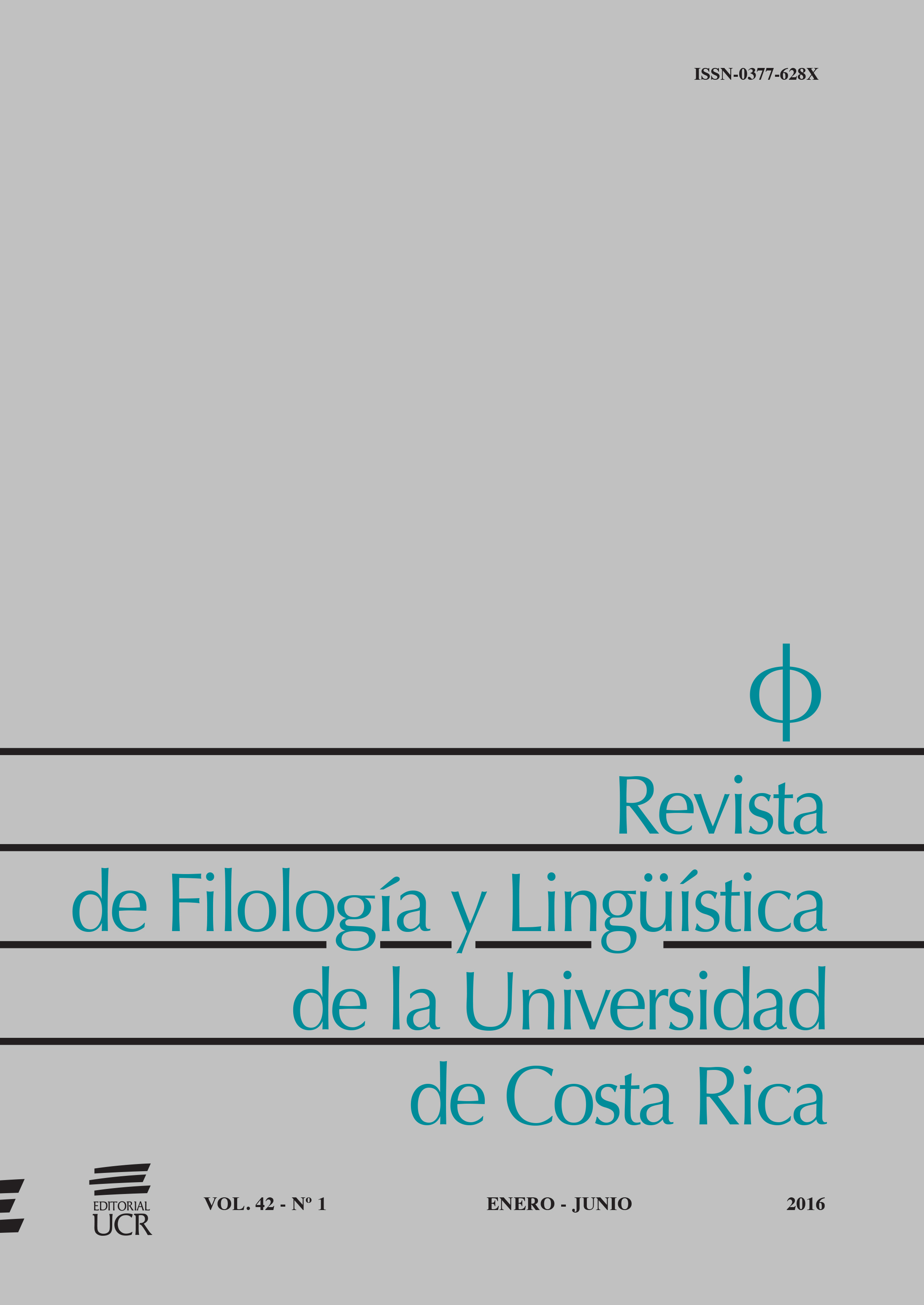Resumen
Este artículo ofrece un análisis de la manera en que autoras latinas se apropian de, y subvierten, elementos de la novela negra en sus obras de ficción policiaca o detectivesca. La cubanoamericana Carolina García-Aguilera y las chicanas Lucha Corpi, Margarita Cota-Cárdenas y Alicia Gaspar de Alba han creado figuras detectivescas femeninas que manipulan y desestabilizan nociones de género, según la conceptualización de la performatividad de género de Judith Butler. Además, a través de su incorporación de referencias culturales específicas e historias de sus comunidades, estas escritoras combaten un doble borrado textual por desafiar tanto la versión dominante de la historia que omite la de comunidades marginadas como las representaciones masculinas de la experiencia chicana o latina.
Citas
Alexander, V. (2006). Investigating the motif of crime as transcultural border crossing. Cinnamon Gardens and The Sandglass. Por C. Matzke and S. Mühleisen (Eds.). Postcolonial Postmortems. Issues and Perspectives. (139-159). Amsterdam: Rodopi.
Butler, J. (1993). Bodies that matter. On the discursive limits of “sex.” New York: Routledge.
Butler, J. (1999). Gender trouble. Feminism and the subversion of identity. New York: Routledge.
Corpi, L. (1992). Eulogy for a brown angel. Houston: Arte Público.
Corpi, L. (1995). Cactus blood. Houston: Arte Público.
Corpi, L. (1999). Black widow’s wardrobe. Houston: Arte Público.
Corpi, L. (2004). Crimson moon. A brown angel mystery. Houston: Arte Público.
Corpi, L. (2009). Death at solstice. Houston: Arte Público.
Cota-Cárdenas, M. (2000). Puppet. A Chicano novella. Albuquerque: U of New Mexico P.
Flys-Junquera, C. (2006). Transgressive appropriations in Lucha Corpi’s detective fiction. By M. Bottalico and S. el Moncef bin Khalifa (Eds.). Borderline identities in Chicano culture. (115-131). Venice: Mazzanti.
Foucault, M. (1990). The history of sexuality. An introduction. Trans. R. Hurley. New York: Vintage.
Freese, P. (1992). The ethnic detective. Chester Himes, Harry Kemelman, Tony Hillerman. Essen: Die Blaue Eule.
Garcia-Aguilera, C. (1996). Bloody waters. New York: G.P. Putnam’s Sons.
Garcia-Aguilera, C. (1997). Bloody shame. New York: G.P. Putnam’s Sons.
Garcia-Aguilera, C. (1998). Bloody secrets. New York: Berkeley Prime Crime.
Garcia-Aguilera, C. (1999). A miracle in paradise. New York: Avon.
Garcia-Aguilera, C. (2000). Havana heat. New York: Avon.
Garcia-Aguilera, C. (2001). Bitter sugar. New York: HarperCollins.
Garcia-Aguilera, C. (2010). Bloody twist. Miami: Miramar.
Gaspar de Alba, A. (2005). Desert blood. The Juárez murders. Houston: Arte Público.
Gregory-Klein, K. (1988). The woman detective. Gender and genre. Champaign: U of Illinois.
Gregory-Klein, K. (Ed.). (1999). Diversity and detective fiction. Bowling Green, OH: Bowling Green U Popular.
Libretti, T. (1999). Lucha Corpi and the politics of detective fiction. By A. Johnson-Gosselin (Ed.). Multicultural detective fiction. Murder from the “other” side. (61-81). New York: Garland.
Martella, G. (2006). Family, identity and the Latina private investigator. By R. W. Craig-Odders, J. Collins, and G. S. Close (Eds.). Hispanic and Luso-Brazilian detective fiction. Essays on the género negro tradition. (204-218). Jefferson, NC: McFarland & Company.
Mulvey, L. (1998). Visual pleasure and narrative cinema. By J. Rivkin and M. Ryan (Eds.). Literary theory. An anthology. (585-595). Malden, MA: Blackwell.
Pearson, C. (2002). Writing from the outside in. Constructs of memory and Chicanas as private eyes in three detective novels by Lucha Corpi. Interdisciplinary Literary Studies. 4 (1), 38-51.
Plain, G. (2001). Twentieth-century crime fiction. Gender, sexuality and the body. Chicago: Fitzroy Dearborn.
Ramos, M. (2001). The postman and the Mex. From hard-boiled to huevos rancheros in detective fiction. Hopscotch. A Cultural Review 2.4, 160-167.
Reddy, M. (1988). Sisters in crime. Feminism and the crime novel. New York: Continuum.
Reddy, M. (2003). Women detectives. By M. Priestman (Ed.). The Cambridge companion to crime fiction. (191-207). Cambridge: Cambridge UP.
Riviere, J. (2000). Womanliness as a masquerade. By S. Saguaro (Ed.). Psychoanalysis and woman. A reader. (70-78). Houndmills, U.K.: Macmillan.
Rodríguez, R. E. (2005). Brown gumshoes. Detective fiction and the search for Chicana/o identity. Austin: U of Texas P.
Saldívar, R. (1990). Chicano narrative. The dialectics of difference. Madison: U of Wisconsin P.
Seaman, A. C. (2004). Bodies of evidence. Women, society, and detective fiction in 1990s Japan. Honolulu: U of Hawai’i P.
Simpson, A. S. (1990). Detective fiction from Latin America. London: Associated UP.
Steblyk, C. (2003). Corpi, Murakami, and Contemporary Hardboiled Fiction. CLCWeb: Comparative Literature and Culture. 5 (2). n. pag. http://docs.lib.purdue.edu/clcweb/vol5/iss2/3/ [Consulta 31 de mayo 2014].
Walton, P. L., and M. Jones. (1999). Detective agency. Women rewriting the hard-boiled tradition. Berkeley: U of California P.

